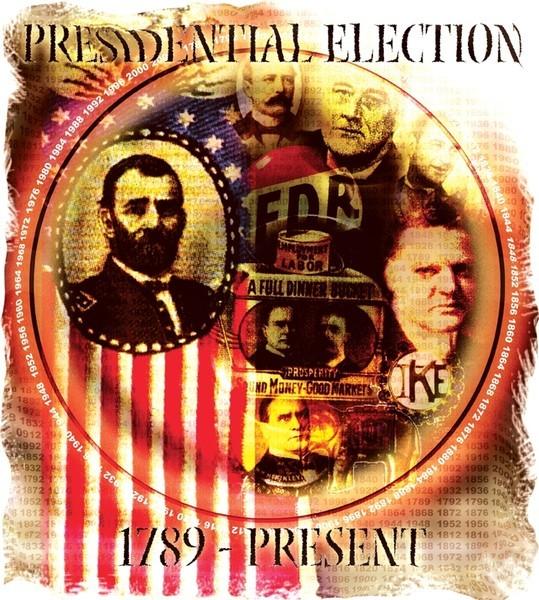
George to George
In the upcoming presidential election, partisanship is a majordeciding factor for voters. Most citizens feel strongly about whichcandidate they support and few are undecided.
But American elections were not always this way; the firstpresidential election had no Iowa Caucuses, no National Conventionsand no Michael Moores. In fact, the first President, GeorgeWashington, had no opposition and was elected unanimously.
The American electoral process has come a long way from GeorgeWashington but the American spirit of democracy has remainedsteady.
The “From George to George” exhibit, currently openat the Bridwell Library, displays the evolution of presidentialelections from 1789 to present.
Included in the exhibit are mementos from past presidentialcampaigns, which range from buttons, ceramics and pamphlets, toportraits, rare inaugural medals and novelty items, like a T-shirtfrom the Bush/Cheney ticket referring to their defeated opponentsin the notorious 2000 election as “Sore Loserman.” Eventhe infamous Florida ballot, minus the hanging chad, is ondisplay.
In addition to Bridwell holdings, the exhibit also showcasesitems on loan from the Smithsonian Institution, the Museum ofAmerican Political Life, the DeGolyer Library, the Amon CarterMuseum and several private collectors in the Dallas-Fort Wortharea.
Republicans and Democrats alike can appreciate this nostalgicexhibit while in the process of exploring a visual history ofAmerica and the leaders who helped shape it.
Separated into six sections, the exhibit explains thedevelopment of the two-party system that we have today and remarkson the irony that George Washington, who was nonpartisan,”lamented the increase in partisanship.”
Over the years, third parties have formed and dissipated,leaving Democrats and Republicans as the dominant parties. Theexhibit demonstrates how the presidential office has cycles ofthriving Democratic and Republican eras.
The last section of the exhibit describes how President Nixon,along with President Ronald Reagan years later, ushered in a NewRepublicanism of limited government, reduced taxes and increasedspending on defense which influenced the politics of the currentelection.
James A. McMillin, the associate director of Bridwell Library,said the main purpose of the exhibit is recognizing the importanceof the presidential election and to hopefully encourage students tovote in November.
The exhibit, a film festival, a lecture series and other eventsare planned to increase political awareness and even give studentsthe opportunity to register to vote.
The percentage of voter turnouts throughout the pastpresidential elections is remarkable.
In the 1828 election, when Andrew Jackson ran against John Q.Adams, more than 56 percent of citizens voted. Later, in decadesfollowing the Civil War, voter turnout was as high as 80percent.
Presently, only about 50 percent of Americans vote inpresidential elections. Some officials attribute this to politicalapathy or too many similarities between candidates from bothdominant parties.
The Electoral College has been criticized since its creation in1789 and some say voters have been discouraged from voting sincethe 2000 election, when the winner of the popular vote did not winthe election.
McMillin hopes this exhibit will help students realize theimportance of exercising their democratic right to vote.
One of the curators of the exhibit, Dr. Hal Williams, also thedean of research and graduate studies, explains the display as”a marvelous exhibit, with rare objects from throughout ourpolitical history, that illustrate the vital role voting andpolitics have played in our history from the times of GeorgeWashington.”
Williams curates the exhibit along with collector Hervey Priddy,who recently donated an important presidential campaign collectionthat serves as the basis for the exhibition.
George Washington once said of the U.S. presidency: “Theoffice seeks the man; the man does not seek the office.”
This quote, displayed at the first section of the exhibit,explains the true meaning of being “leader of the freeworld.”
The exhibit asks students to set partisanship aside becauseevery American can respect and appreciate the importance of such atitle and of such an office.
For a complete schedule of events, students can visit theBridwell Library Web site.
Students can visit the Bridwell Library’s Web site athttp://www.smu.edu/bridwell/html/GeorgeGeorge.htm.








